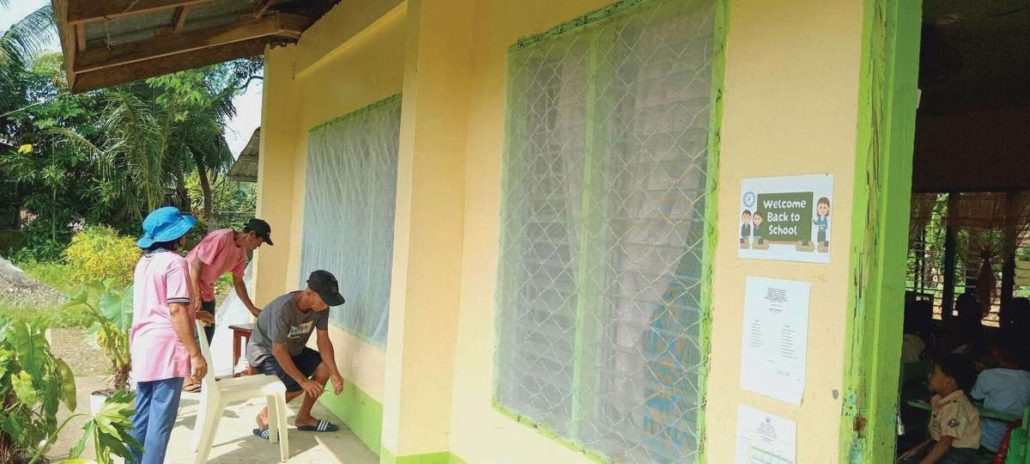

ILOILO City – The Department of Health (DOH) urges the public to consistently practice the “search and destroy” method to eliminate breeding sites for mosquitoes as the death toll from dengue in Western Visayas climbed to 42.
From January 1 to August 24, there have been 18,056 reported cases of dengue, which include the fatalities. This represents a 224% increase from the same period in 2023, where 5,491 cases and 25 deaths were recorded.
Dr. Bea Camille Natalaray, medical officer IV and head of the Emerging and Re-Emerging Infectious Disease (EREID) unit of DOH Region 6, cited the ongoing risk posed by continuous rainfall which aids the proliferation of mosquito breeding sites.
“We must be consistent in our search and destroy efforts,” said Natalaray.
Dengue is a viral infection transmitted by the Aedes mosquitoes – these are day-biting mosquitoes that breed in clear, stagnant water.
Just in the past week, from August 17 to 24, an additional 2,368 cases and 11 deaths have been reported across the region.
The “search and destroy” strategy against dengue involves actively seeking out and eliminating stagnant water sources where Aedes mosquitoes breed. This includes several key activities such as identifying potential breeding sites (standing water in flower pots, vases, discarded containers, water storage containers, and any other locations where water can collect and remain for more than a few days); removing or covering water storage containers to prevent mosquitoes from laying eggs in these areas; applying appropriate treatments (such as larvicides) in larger bodies of water that cannot be easily drained or covered, such as ponds or decorative garden pools; and regular cleaning.
Why consistency is important?
The lifecycle of a mosquito can be as short as seven days from egg to adult, so weekly cleaning of potential breeding sites is necessary to interrupt and prevent the development of new generations of mosquitoes.
Regular removal of potential breeding sites helps to reduce the overall mosquito population and minimize the risk of dengue outbreaks.
Aedes mosquitoes are daytime feeders and tend to breed close to human dwellings, which makes residential areas particularly vulnerable to dengue. Regular and thorough search and destroy operations in these areas can significantly reduce the risk of transmission.
Here is the breakdown of dengue cases per province and highly urbanized cities:
* Aklan – 1,919 cases, two deaths
* Antique – 1,012 cases, one death
* Capiz – 1,828 cases, five deaths
* Guimaras – 1,446 cases, one death
* Iloilo – 7,020 cases, 20 deaths
* Iloilo City – 1,118 cases, four deaths
* Negros Occidental – 2,864 cases, eight deaths
* Bacolod City – 849 cases, one death
Natalaray emphasized the importance of recognizing warning signs of dengue such as abdominal pain, persistent vomiting, fatigue, bleeding gums and nose, and blood in vomit or stools, urging immediate consultation with health facilities.
DOH-6 has launched various initiatives to combat the outbreak, including ongoing case and serotype surveillance, outbreak response monitoring, and coordination meetings with provincial and city health offices.
Other measures include orientations on dengue clinical case management and pesticide application, alongside reviews of dengue deaths.
The age groups affected by dengue are:
* Less than one year old – 428 cases
* 1 to 10 years – 5,729 cases
* 11 to 20 years – 6,203 cases
* 21 to 30 years – 3,049 cases
* 31 to 40 years – 1,142 cases
* 41 to 50 years – 510 cases
* 51 years and above – 995 cases
Three provinces have so far declared a dengue outbreak: Iloilo, Capiz, and Aklan, including Iloilo City.
According to DOH-6 data, there are 959 barangays with clustering of cases, indicating three or more cases within a four-week period. Some barangays have been identified as hotspots due to an increasing trend in cases or the occurrence of dengue-related deaths.
Here’s the breakdown of barangays with dengue clustering:
* Aklan – 85
* Antique – 30
* Capiz – 106
* Guimaras – 66
* Iloilo – 415
* Iloilo City – 88
* Negros Occidental – 233
* Bacolod City – 27
As the region grapples with dengue, the public is encouraged to participate actively in vector control activities and to take personal protective measures such as using mosquito repellents and wearing light-colored long sleeves to minimize skin exposure to mosquitoes./PN





